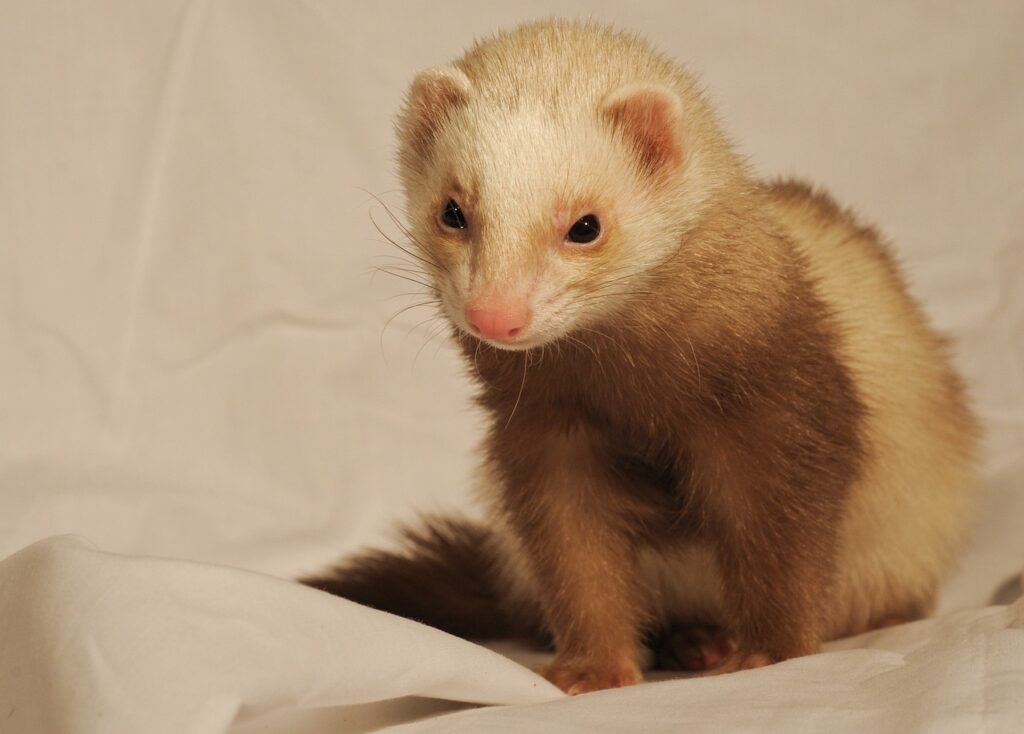Can Ferrets Eat Worms — Exploring the Nutritional Benefits
Ferrets are fascinating little creatures that require a carefully balanced diet to thrive. One common question that often pops up is whether ferrets can eat worms. In short, the answer is yes, ferrets can eat worms. In fact, worms can provide a significant nutritional boost for these curious carnivores.
The Primary Advantages of Feeding Worms to Ferrets
When it comes to the nutritional needs of ferrets, protein is an essential component. Worms are an excellent source of high-quality protein, making them a beneficial addition to your ferret’s diet. Protein aids in maintaining and repairing tissues, supports muscle growth, and contributes to a healthy immune system.
Furthermore, worms are rich in beneficial fatty acids, including omega‑3 and omega‑6. These fatty acids are crucial for your ferret’s overall health, promoting a shiny coat, healthy skin, and improving cognitive function.
Moreover, worms contain essential vitamins and minerals that can enhance your ferret’s well-being. For instance, worms are packed with vitamin A, which supports vision and immune function, as well as vitamin B12 for improved metabolism and nervous system function.
The Recommended Frequency and Quantity
While worms offer valuable nutritional benefits for ferrets, moderation is key. It is recommended to feed worms to your ferret as a treat or occasional addition to their regular diet. This ensures a balanced intake of nutrients without overwhelming their system. A few worms a couple of times a week is generally sufficient to provide the benefits mentioned above.
Potential Cautions with Feeding Ferrets Worms
Although worms can be a nutritious addition to your ferret’s diet, there are a few precautions to keep in mind. Make sure the worms you offer are from a reliable source and not collected from the wild. Wild worms may carry parasites or toxins that could harm your pet. Opt for commercially bred worms or consult with a veterinarian for safe alternatives.
Additionally, some ferrets may have specific dietary sensitivities or allergies. It is essential to monitor your ferret closely after introducing worms into their diet to ensure they tolerate them well. If you notice any adverse reactions such as digestive upset or changes in behavior, discontinue feeding worms and consult with a veterinarian.
Can Other Pets Enjoy Worms Safely?
Worms are primarily beneficial for ferrets due to their unique nutritional needs. While other pets, such as chickens or reptiles, might also enjoy worms as part of their diet, it is crucial to research the specific dietary requirements of each species. What is safe for a ferret may not be suitable for other pets, so it’s best to consult with a veterinarian or do thorough research before offering worms to any other animals.
Conclusion
Feeding worms to your ferret can provide excellent nutritional benefits, particularly in terms of protein, fatty acids, vitamins, and minerals. However, it’s important to remember that worms should be offered in moderation and sourced from reliable sources. Prioritize your ferret’s well-being by consulting with a veterinarian and monitoring their response to ensure a happy and balanced diet. With proper care and responsible feeding, worms can be a delectable and nutritious addition to your ferret’s menu.






